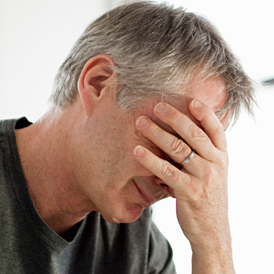‘Glaring inequality’ in mental health treatment
Three-quarters of people suffering from mental illness are not getting treatment experts say, as a damning report concludes that the NHS is failing those with the condition.

The authors of the report say that the under-treatment of people suffering from mental illnesses is the most “glaring case of health inequality” in Britain.
They say that mental illness now accounts for nearly half of all ill health suffered by people in Britain – and it can be more debilitating than some chronic diseases – but only a quarter of those involved are receiving treatment.
Effective psychological therapies exist but are not widely available, the report by the Mental Health Policy Group from the London School of Economics (LSE) found.
Two-fifths of patients suffering from anxiety or depression can recover if they are treated by means such as cognitive behavioural therapy. The authors say that if such treatments were more widely available, it would cost the NHS little or nothing because it would produce savings in other healthcare areas.
‘Glaring health inequality’
Mental illness can manifest itself in physical symptoms, and the group of experts estimate such symptoms cost the NHS at least £10bn. Much of this money would be better spent on psychological therapies, they claim.
The report underlines the fact that mental health remains a poor relation to physical health despite the major links between depression, diabetes and heart disease. Dr Andrew McCulloch, Mental Health Foundation
“Despite the existence of cost-effective treatments it (mental illness) receives only 13 per cent of NHS expenditure,” they write.
“The under-treatment of people with crippling mental illness is the most glaring cause of health inequality in our country.”
One third of families have a member who is currently suffering from a mental illness, they say. It accounts for nearly half of absenteeism at work and mental illness accounts for nearly half of people on incapacity benefits.
The authors, who include doctors, psychologists, NHS managers and economists, condemn local health commissioners for inappropriately using allocated mental health funding and say that in some areas mental health provisions are being cut.
Read more: MP shows human face of mental illness
Mental health is ‘poor relation’
Mental Health Foundation Chief Executive Dr Andrew McCulloch added: “The report underlines the fact that mental health remains a poor relation to physical health despite the major links between depression, diabetes and heart disease, for example.
“We have to tackle a situation where only 25 per cent of people with common forms of mental illness are receiving treatment and where there is massive under-investment in mental health research.”
Care Services Minister Paul Burstow said: “Mental ill-health costs £105bn per year and I have always been clear that it should be treated as seriously as physical health problems.
“We will shortly publish our plans to make sure the NHS, councils, voluntary organisations and others can play their part in improving the nation’s mental health.
“The coalition government is investing £400m to make sure talking therapies are available to people of all ages who need them.
“This investment is already delivering remarkable results.”
-
Latest news
-
Taylor Swift’s new break-up album breaks records3m

-
NHS trust fined £200K for failings that led to death of two mental health patients3m

-
Sunak vows to end UK ‘sick note culture’ with benefit reform3m

-
‘Loose talk about using nuclear weapons is irresponsible and unacceptable’, says head of UN’s nuclear watchdog3m

-
‘There wasn’t an Israeli attack on Iran,’ says former adviser to Iran’s nuclear negotiations team7m

-




